“There were many difficulties, but I have no tendency to run away: I was thinking what could be done to meet the village’s needs and allow us to continue living and working here. I understood that opening a bakery in the village and delivering hot bread to the residents in this difficult situation would be of strategic importance for the nearby villages as well. All the members of my family accepted my idea with love, and at my son’s suggestion, we named the bakery “Mayrik” (“Mommy”) in honour of my efforts and emotions,” said Aida Grigoryan, a mother of five.
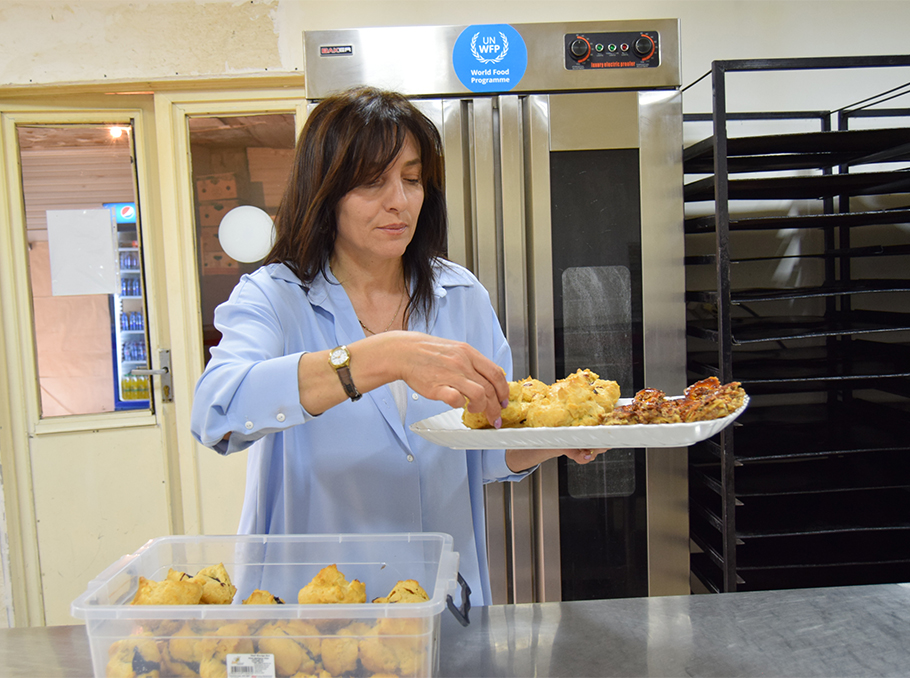 Aida Grigoryan
Aida Grigoryan Photo: Anahit Baghdasaryan/Mediamax
Aida is one of the residents of Syunik who received support from the Resilience and Economic Recovery of the Border Communities in Armenia (REBCA) project, implemented within the framework of the Resilient Syunik Team Europe initiative, which, in turn, is being carried out with the support of the Swiss Agency for Development and Cooperation (SDC). Through this project, the United Nations World Food Programme contributed to the establishment of “Mayrik” and the development of the enterprise, supporting the furnishing of the bakery and the installation of solar panels. As a result, “Mayrik” got the opportunity to save money on electricity and secure additional income.
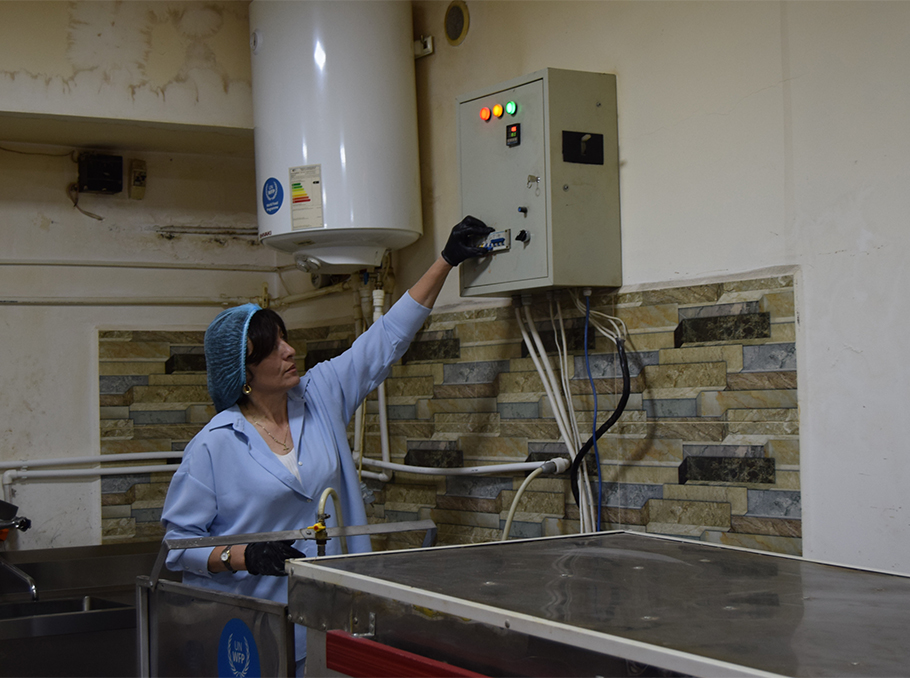 Aida Grigoryan
Aida Grigoryan Photo: Anahit Baghdasaryan/Mediamax
The aim of the REBCA project is to support the residents affected by the September 2022 military clashes in the Vardenis, Jermuk, and Sisian communities. This project, implemented jointly with the UN World Food Programme, World Vision Armenia, the Strategic Development Agency NGO, and Child Development Fund, employs the Nexus approach, which entails the combining of short-term humanitarian response and actions aimed at economic recovery. In other words, they initially help people quickly overcome difficult situations and then support them in achieving social and economic stability.
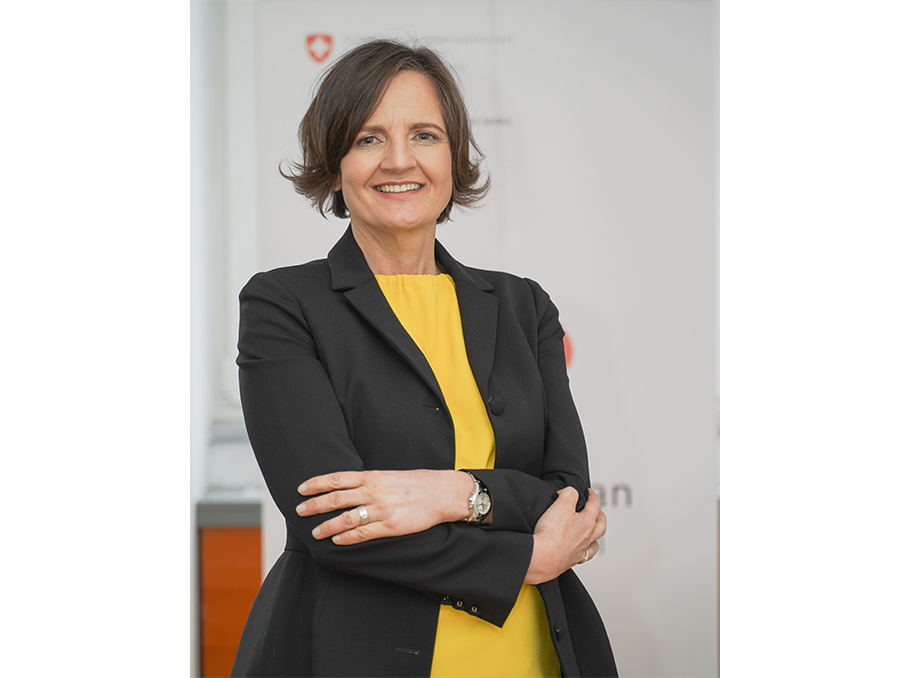 Ursula Läubli
Ursula Läubli
“The objective of the REBCA project is to protect and reestablish the livelihoods of people living in border areas within the Armenian territory. At the same time, it shall provide economic support towards long-term economic recovery and growth. Thus, it will improve resilience towards future crisis situations,” Ursula Läubli, Deputy Head of Mission of the Embassy of Switzerland in Armenia, Deputy Regional Director of Swiss Cooperation South Caucasus, said.
Vorotan bakery, three border villages and vital support
“After the 44-day war, when the Vorotan-Goris road was closed, it was a problem to provide daily bread for the villages of Vorotan, Bardzravan and Shurnukh. Bread was delivered to the villages by an alternative route using the Emergency Situations Ministry’s 911 service car, sometimes with difficulty, and often arriving frozen and stale,” said Aida.
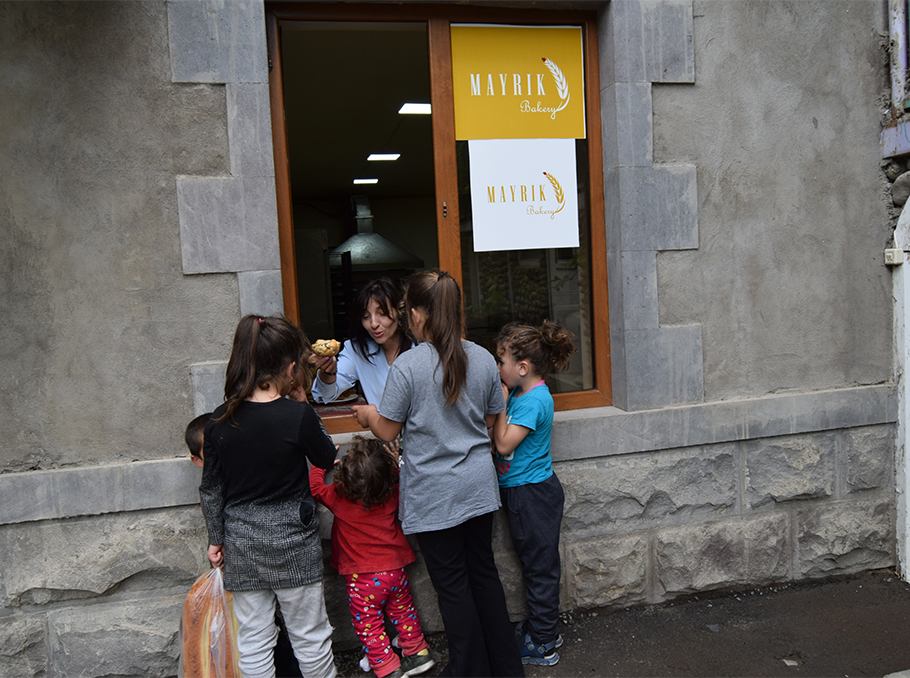
Photo: Anahit Baghdasaryan/Mediamax
Aida was born in Khot village and married in Goris. They owned a plot of land in Vorotan village. At one time, her husband’s parents planted various vegetable crops and distilled wine and vodka. Since 1993, they have established their own business on their land. Guests from different parts of Armenia visited the Sanasar restaurant to taste oven-baked ghapama, baklava, barbecue, and kashlama, and to drink mulberry vodka, wine, and fruit compotes. All this is still there, but the number of customers is not the same as before: with the closure of the road, the business has also weakened.
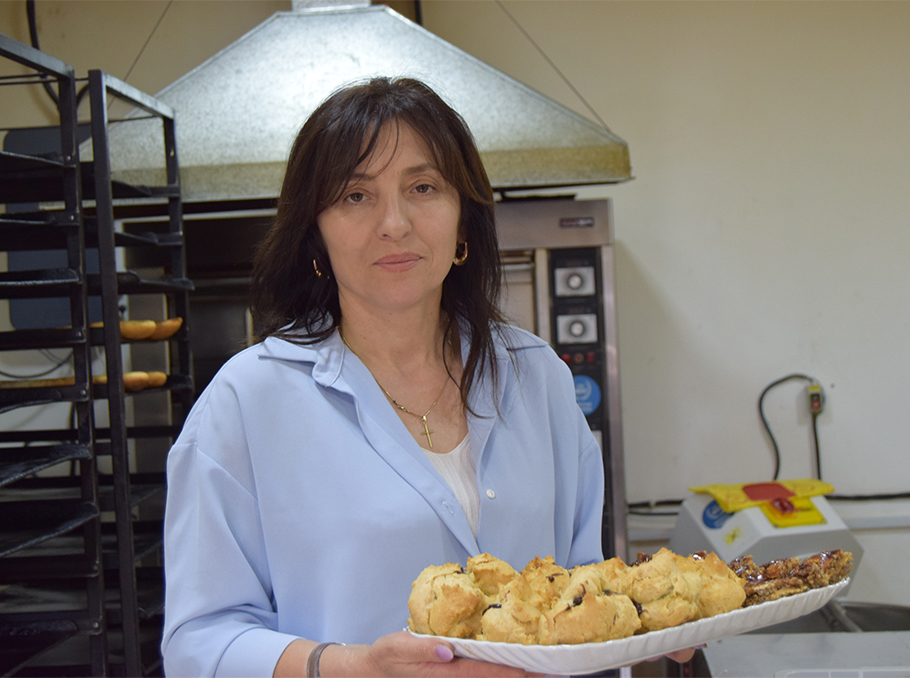 Aida Grigoryan
Aida Grigoryan Photo: Anahit Baghdasaryan/Mediamax
“I realized that we need to develop a new branch of business that will keep the village residents on their land. The issue of bread was paramount in that situation, which gave me the idea to do what I have loved since I was a child: to work with dough,” said the founder of “Mayrik” bakery.
According to her, it is not profitable from a business standpoint, as she uses two bags of flour per day. However, she is satisfied with the fact that she is able to supply hot bread every day to 150 farms in four villages: Vorotan, Bardzravan, Shurnukh and Khot.
At present, four local women are working with Aida at the bakery. Aida primarily bakes cakes, while the others bread and lavash. Her husband, Andranik, delivers these products to the villages, going from house to house and giving everyone the amount of bread and pastries they need.
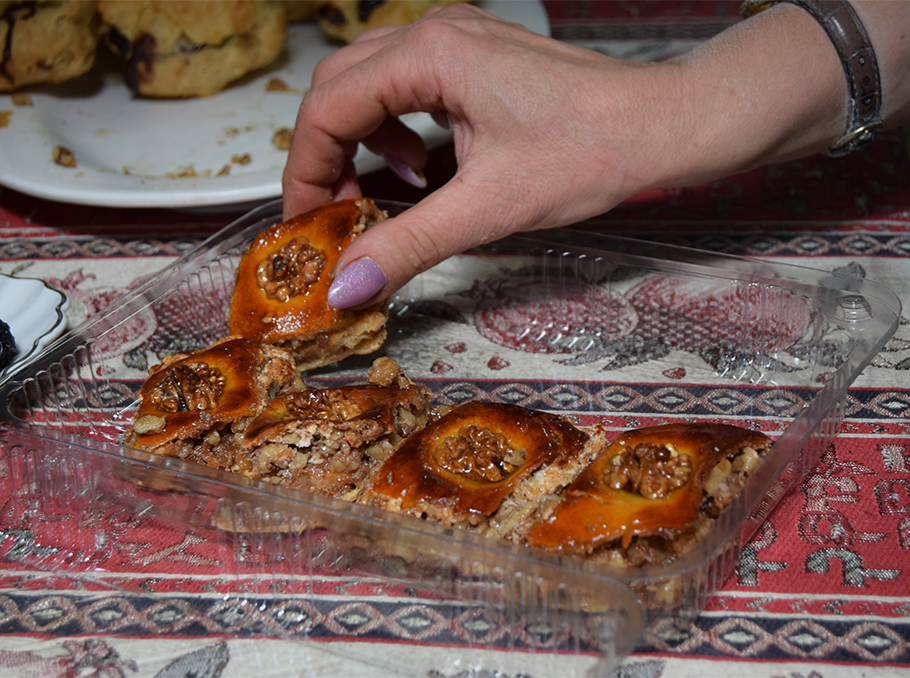
Photo: Anahit Baghdasaryan/Mediamax
“There is no shop in the villages of Vorotan, Shurnukh, Bardzravan, so we have to deliver bread to each household individually. Since this transportation also had its difficulties, with the support of the Syunik Governor’s Office, we were provided with a UAZ car,” said “Mayrik’s” founder, adding that “we do not view this as a business, but as a way of sustaining the villages.”
In the mentioned villages, people were mainly engaged in cattle breeding and agriculture. However, after the 44-day war and the subsequent loss of land, many sold their livestock and became dependent on state benefits, pensions, or aid provided by international organizations.
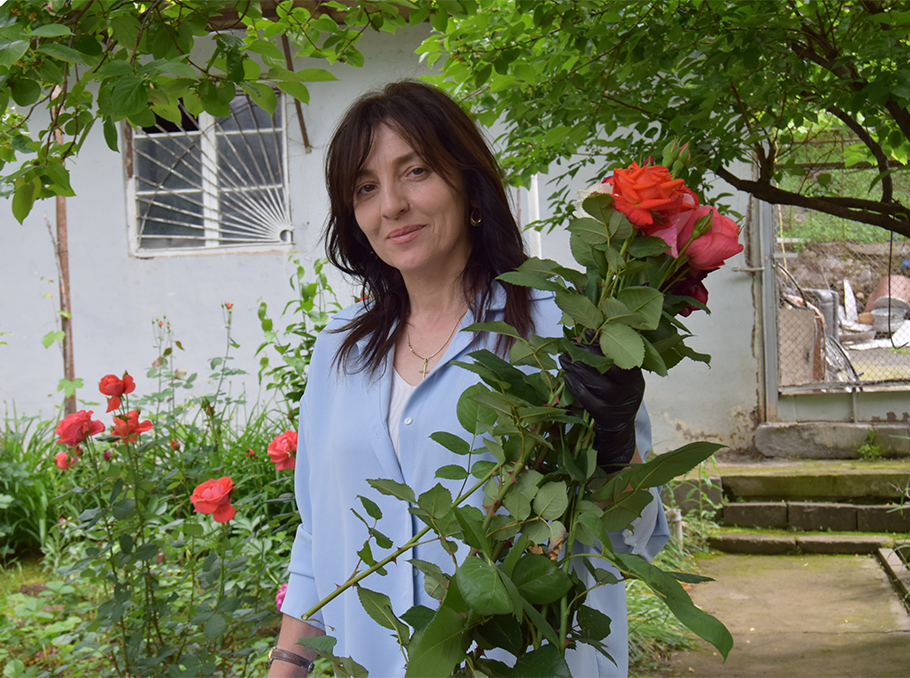 Aida Grigoryan
Aida Grigoryan Photo: Anahit Baghdasaryan/Mediamax
“It also affects our work. People borrow the bread until they receive a pension or benefit. When there are seven children at home, he takes 7-8 breads a day. How can you leave those children without bread?” said Aida.
REBCA project was launched in November 2022 and will last for one year. However, after the displacement of the population of Nagorno-Karabakh in 2023, the Swiss Agency for Development and Cooperation extended it for another eight months, adding various components for them.
The project moved forward with three main components: food support cards provided in the communities based on special criteria. Local residents received them for two months and displaced families for three months.
Various socio-psychological support measures were also organized for these families, such as meetings with children using a special methodology and initiatives focused on positive parenting.
In the target communities, World Vision Armenia also built simple shelters and, in collaboration with municipal authorities, developed community social plans. This partnership resulted in the co-financing of several social programmes. For instance, in the Shaki settlement in Sisian, a preschool received heating upgrades and new kitchen equipment.
From capacity building to providing funds for economic resilience
To ensure economic stability for families, the Strategic Development Agency NGO worked in the target communities with individuals who had livestock during the previous year and the main source of employment and income was cattle breeding.
“Thanks to this project, for the first time in the last eight years, we sowed 1.5 hectares of sainfoin and barley in our fields. We had about ten hectares of grassland, but it remained uncultivated due to financial issues,” said Kristine Mnatsakanyan, a beneficiary of the project, and a resident of Sarnakunk village in the Sisian community.
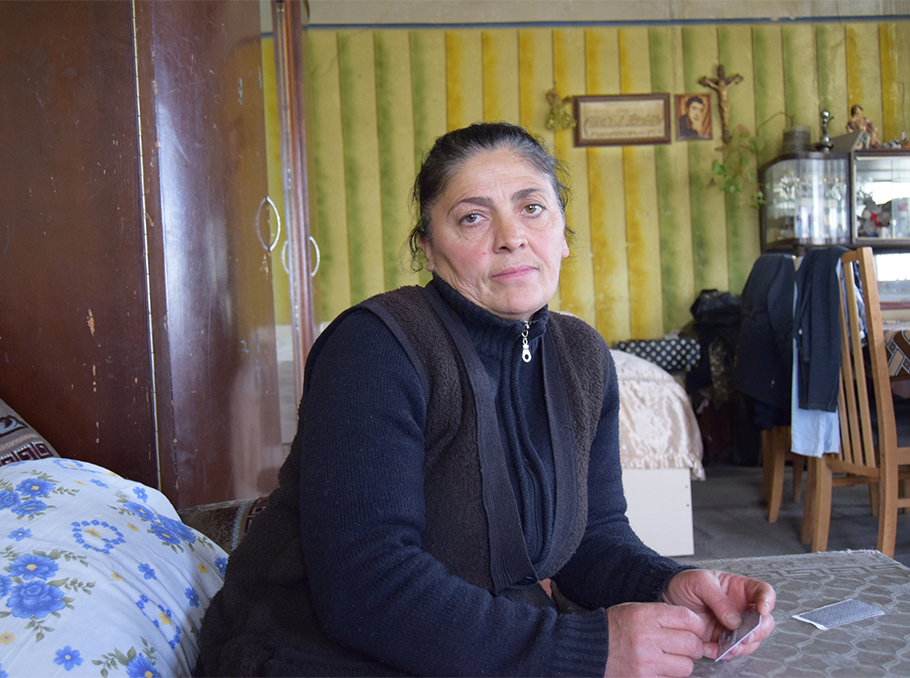 Kristine Mnatsakanyan
Kristine Mnatsakanyan Photo: Anahit Baghdasaryan/Mediamax
Three or four years ago, Kristine’s family’s source of income was cattle breeding and agriculture. They owned fourteen cows and a calf, but due to a difficult financial situation, they had to sell them.
“Since the issue of fodder has been resolved, we have a strong desire to have at least one cow again,” said Kristine, who now keeps someone else’s cattle with her eldest son.
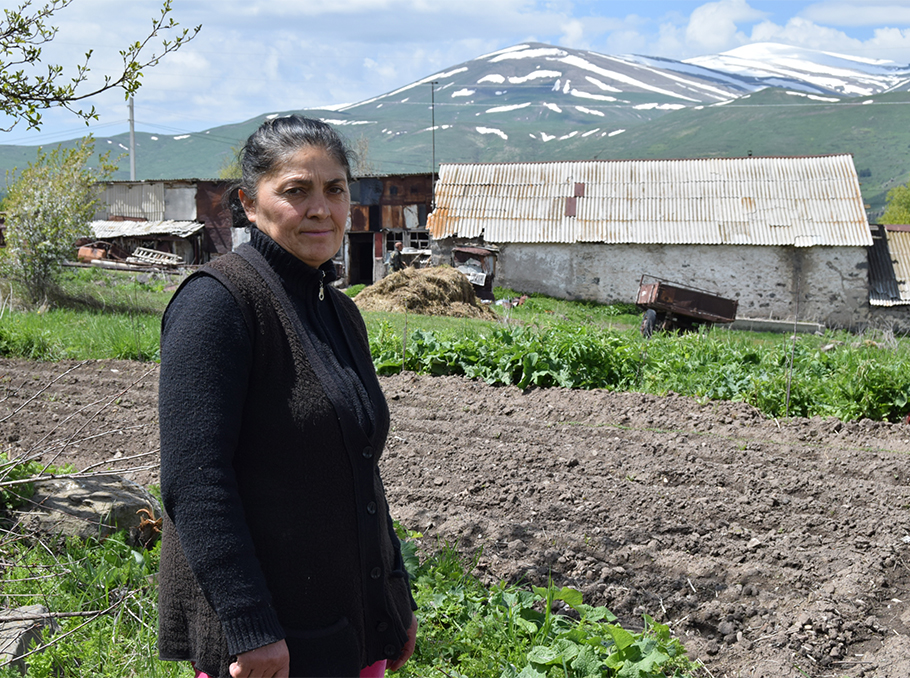 Kristine Mnatsakanyan
Kristine Mnatsakanyan Photo: Anahit Baghdasaryan/Mediamax
Beneficiaries will benefit from perennial fodder plants for five years, as sainfoin does not yield a harvest in the first year. To ensure results from the land in the first year, barley is sown concurrently.
Kristine’s husband, Yenok Abrahamyan, emphasizes the importance of organized trainings. “Before receiving appropriate support, we also gained knowledge about proper use and practices that will help us in the future.”
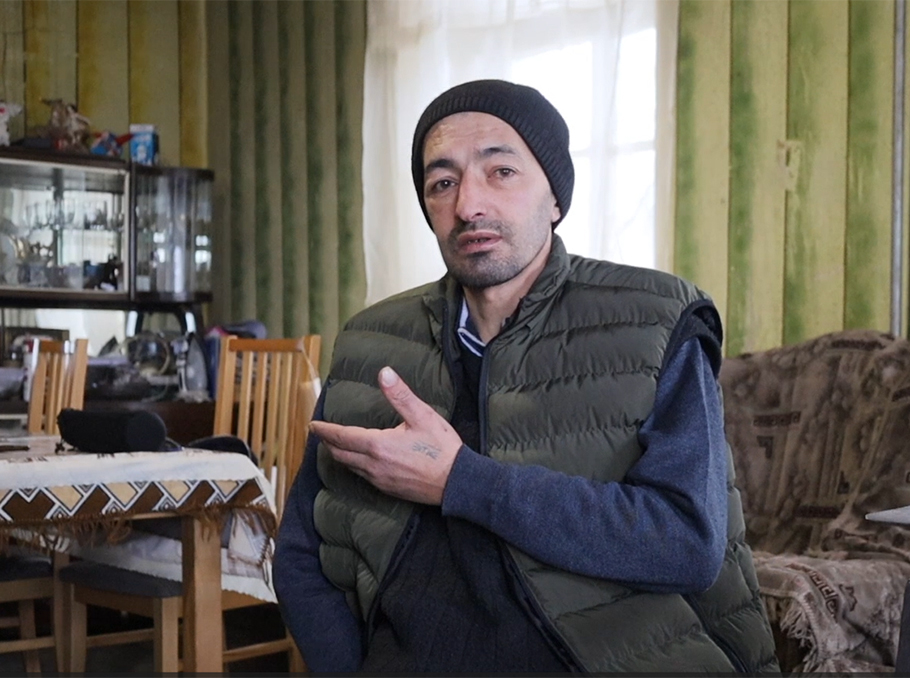 Enoq Abrahamyan
Enoq Abrahamyan
He notes that the trainings covered topics on taking animal care, technologies for cultivating perennial crops, and methods for collecting fodder for animals based on changing climate conditions. After the trainings, they received seeds and diesel fuel.
Like Yenok, 210 farmers were trained, and about 180 received various support in the form of agricultural supplies, seeds, and new cattle breeds. Yenok’s family of five also received a food card for two months.
“This project, supported by the Swiss government and SDC, demonstrates the power of strategic partnerships in transforming the lives of vulnerable people in Armenia. Our goal was to help the most affected communities in Syunik, Gegharkunik, and Vayots Dzor regions to recover from the military escalations in September 2022 and to build economic resilience for a longer term. By addressing immediate humanitarian needs and promoting long-term stability, we aimed to support communities overcome current and future challenges. Thanks to the vital support from our partners, significant outcomes were achieved. Through economic assistance, psycho-social support, and food card assistance, the resilience of these border communities has been greatly enhanced. This initiative successfully created job opportunities, diversified income, and improved food security, highlighting the effectiveness of our strategies and the importance of gender dynamics in our efforts,” said Nanna Skau, UN World Food Programme Representative and Country Director.
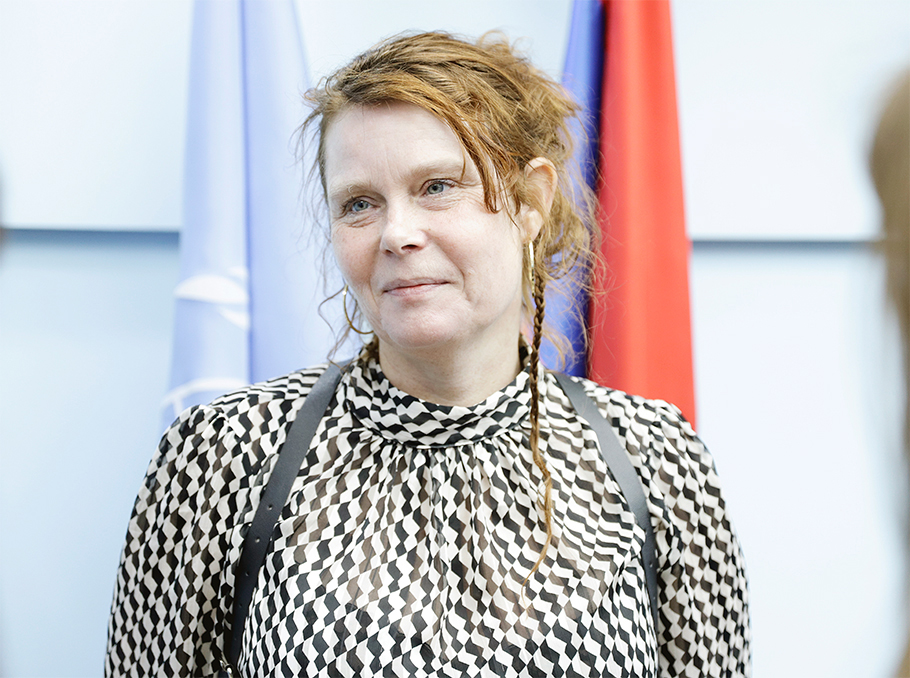 Nanna Skau
Nanna SkauPhoto: Mediamax
Within the framework of the project, five agricultural infrastructures were built: shepherd’s shelters and water tanks, agricultural assessment plans of the communities were developed. They will allow mapping the resources and community capabilities and implementing proper planning in terms of community development.
“The Resilient Syunik Team Europe initiative is the joint undertaking of the European Union, the European Investment Bank, EU Member states - Austria, Czechia, Estonia, Finland, France, Germany, Lithuania, the Netherlands, Poland, Sweden, and Switzerland also joining as an external partner. The initiative aims to contribute to the sustainable socioeconomic development of the Syunik region.”
***
This article was published with the financial support of the European Union. Its content is the sole responsibility of Mediamax and does not necessarily reflect the views of the European Union.
Anahit Baghdasaryan








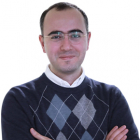
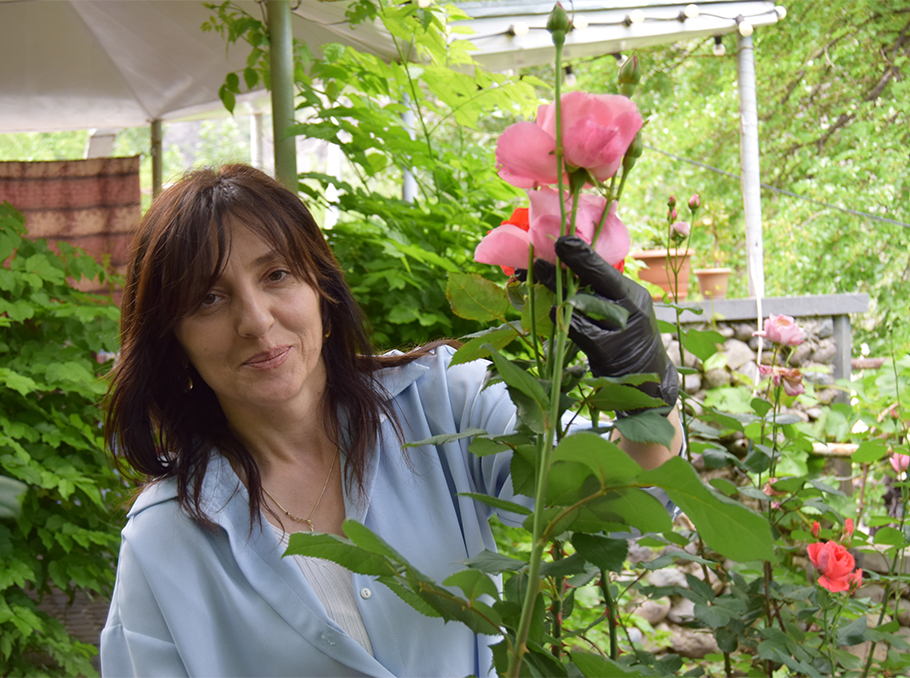
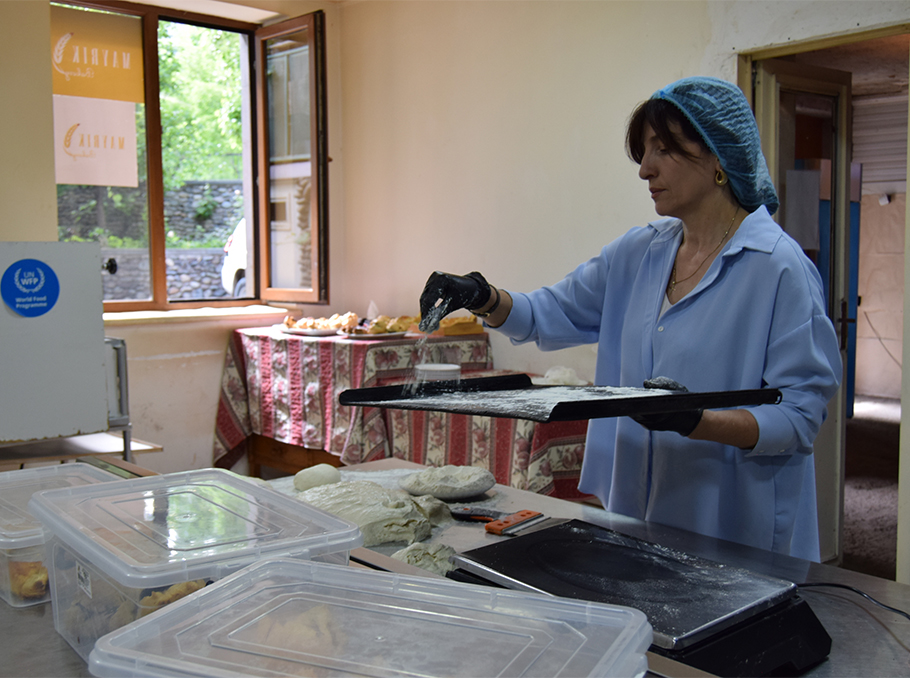
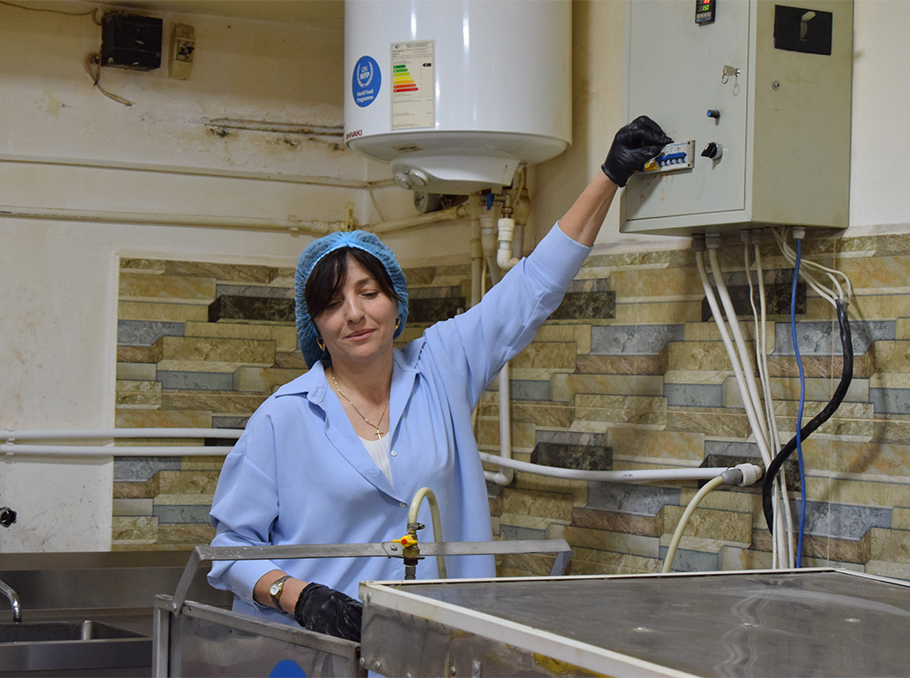
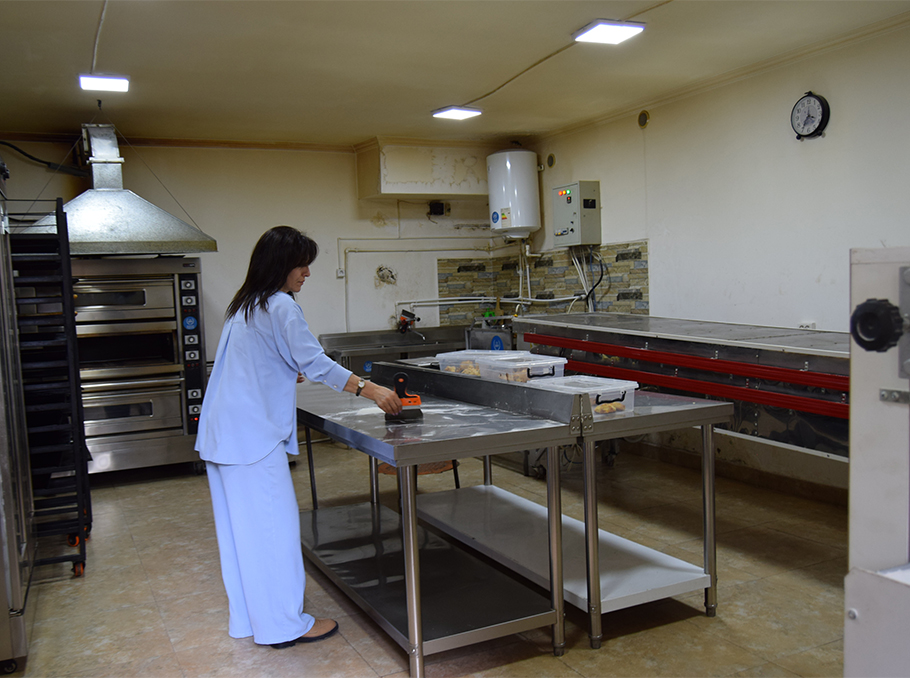
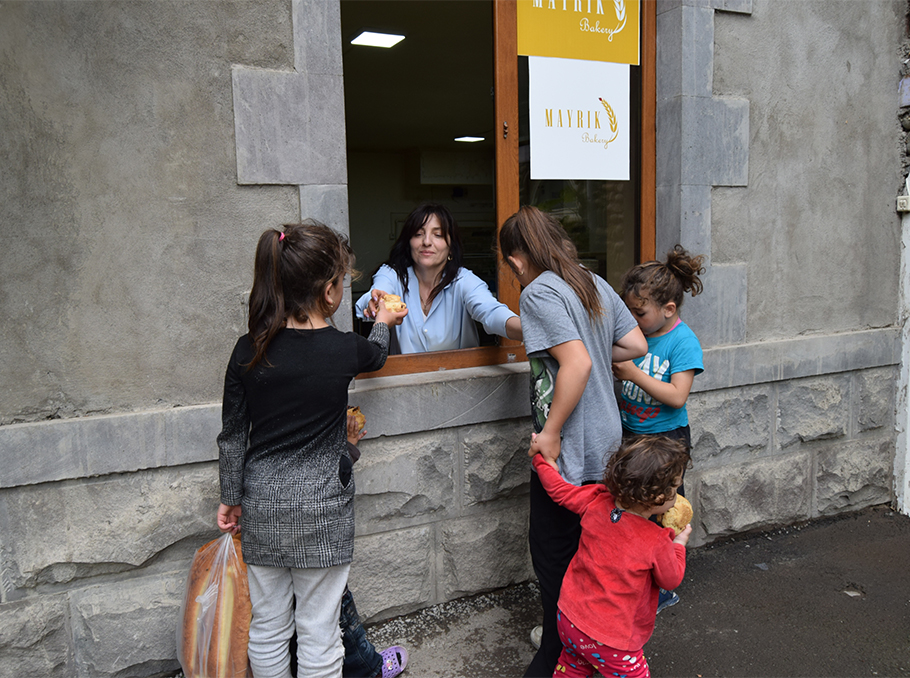

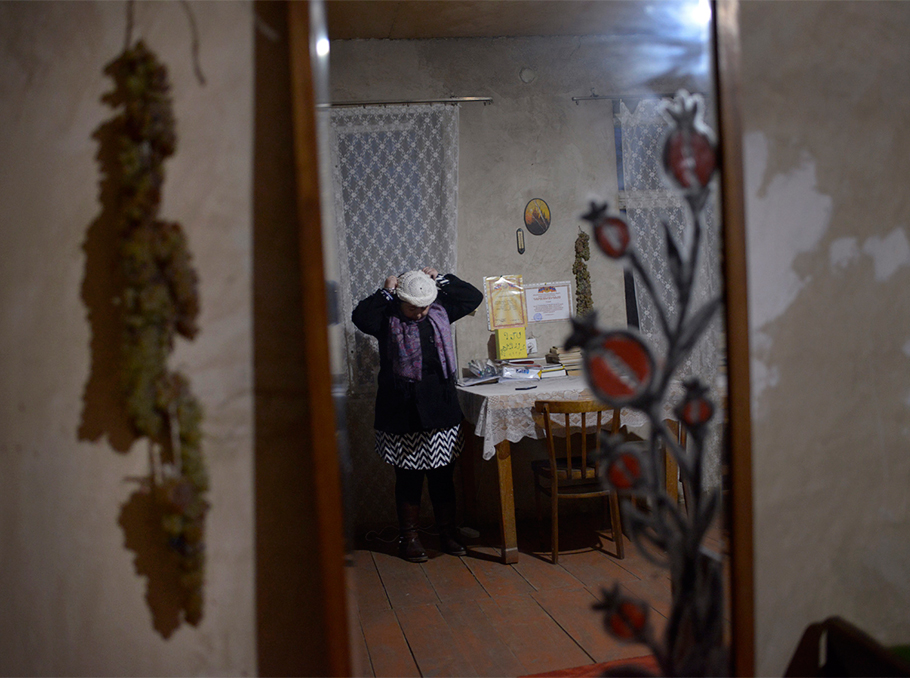
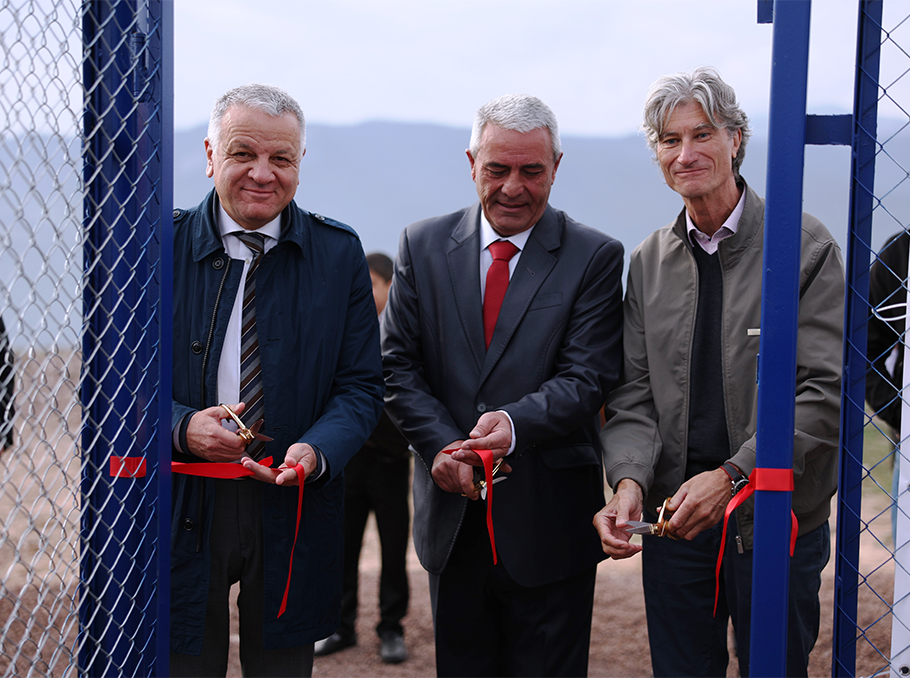
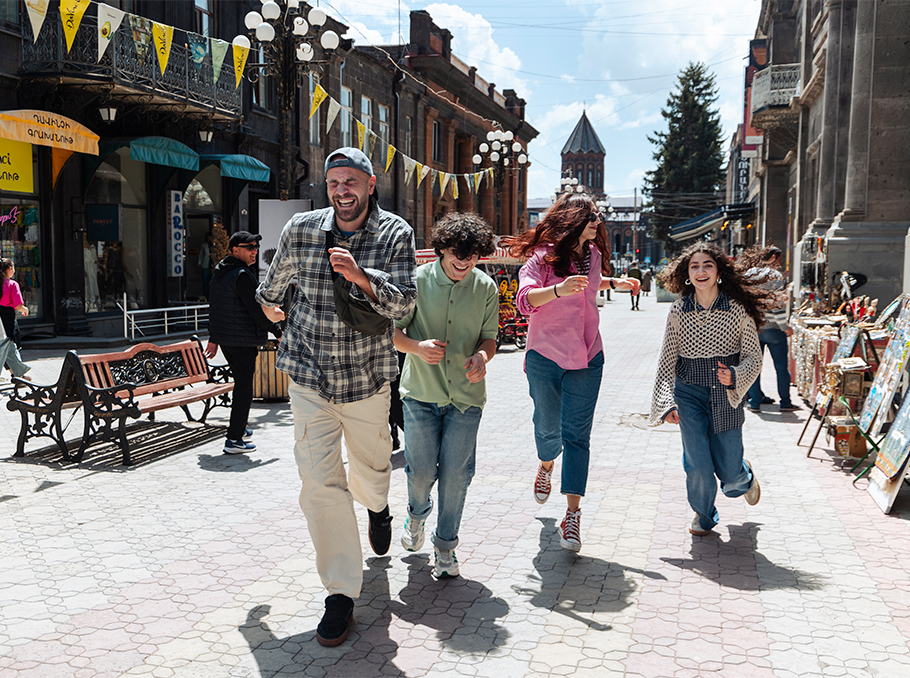
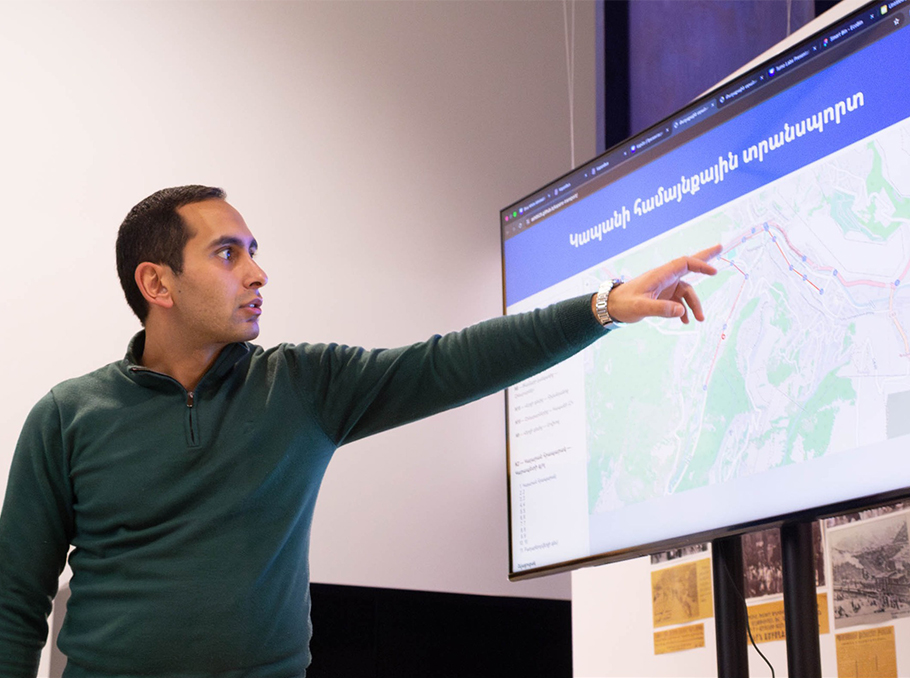
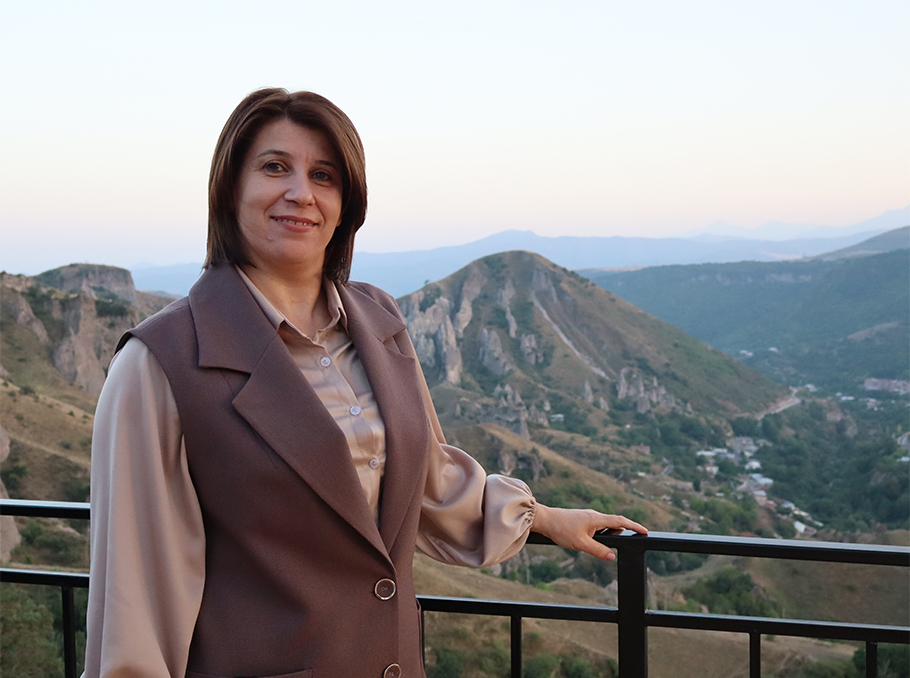







Comments
Dear visitors, You can place your opinion on the material using your Facebook account. Please, be polite and follow our simple rules: you are not allowed to make off - topic comments, place advertisements, use abusive and filthy language. The editorial staff reserves the right to moderate and delete comments in case of breach of the rules.